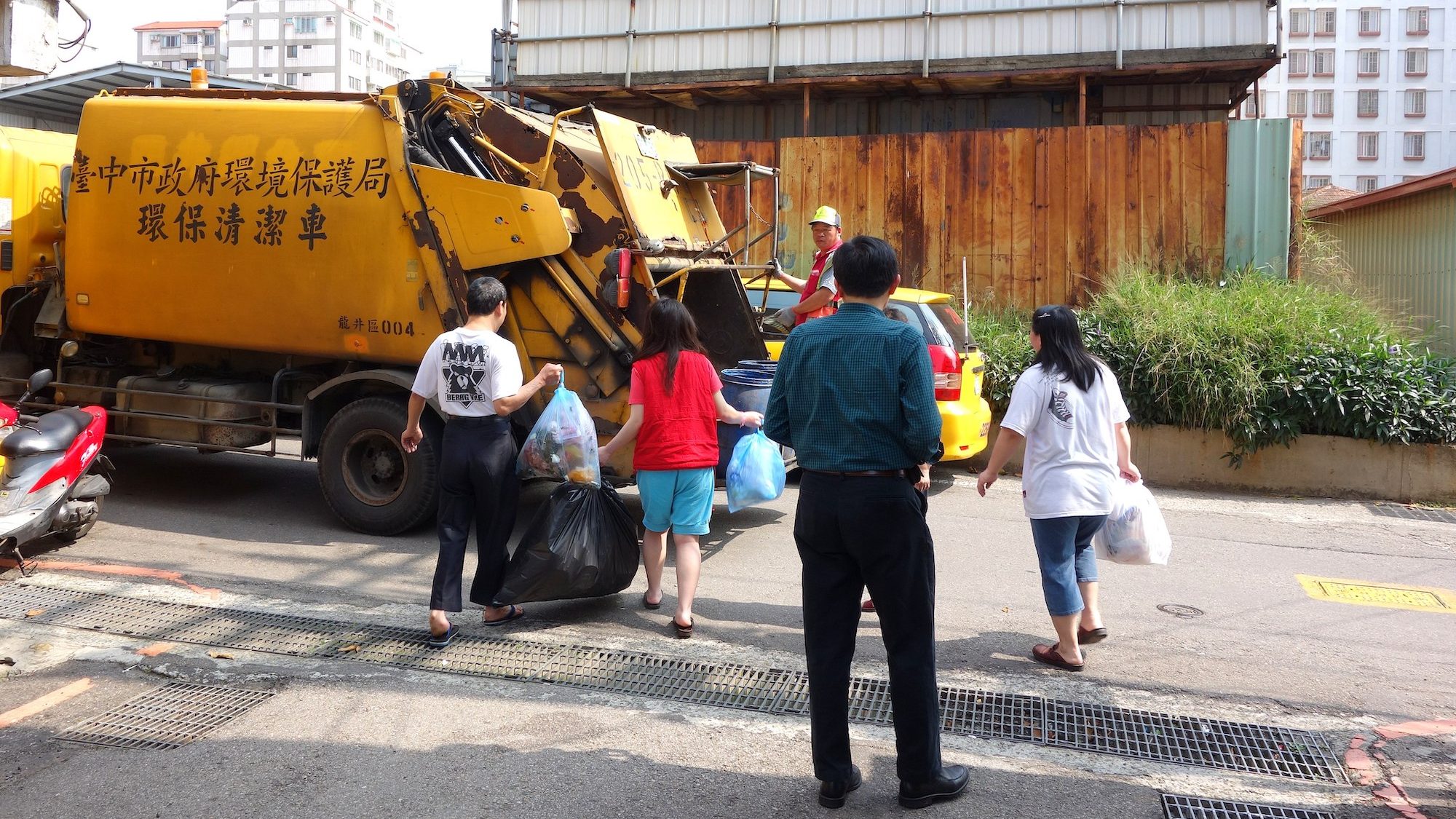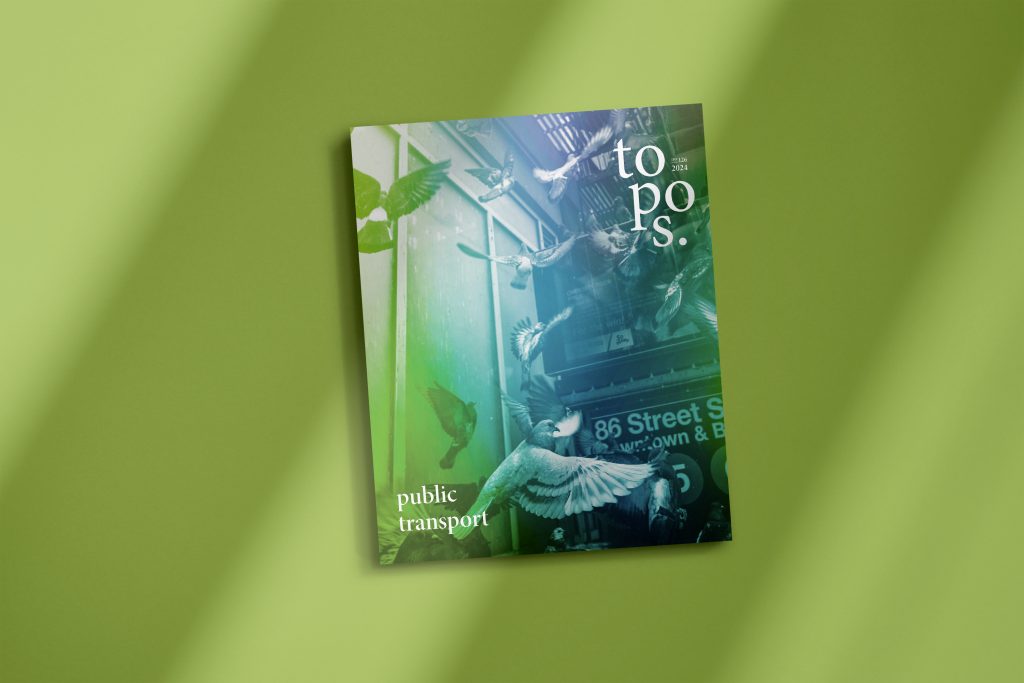Beethoven: Time to take out the trash

When Taiwanese hear Beethoven’s “Für Elise,” or “Maiden’s Prayer“ by Bądarzewska-Baranowska, it is time to take out the trash. Because that’s when the rubbish trucks in Taiwan come and take the household waste away. For the people of Taiwan, this is also an important moment of social interaction in the night.
Billboard
Skyscrapper
Halfpage
When Taiwanese hear Beethoven’s “Für Elise,” or “Maiden’s Prayer“ by Bądarzewska-Baranowska, it is time to take out the trash. Because that’s when the rubbish trucks in Taiwan come and take the household waste away. For the people of Taiwan, this is also an important moment of social interaction in the night. Read all about the urban phenomenon here.
Classical melodies such as Beethoven’s “Für Elise” and Bądarzewska-Baranowska’s “Maiden Prayer” are ubiquitous sounds in much of the world, present in piano lessons, children’s toys and advertisements. But in Taiwan, the famous jingle is a call to action and a signal for the nightly ritual of trash collection.
Beethoven: a musical call to action
“I enjoy taking out the trash because it’s a chance to catch up with my friends”, a resident of Taipei told reporters.
Taiwan’s garbage trucks are canary-yellow, often followed by smaller white recycling trucks. At night, they announce that they are close through cheerful jingles, immediately transforming quiet neighbourhoods into something akin to a neighbourhood block party. Residents of all ages leave their homes to bring down the trash, some arriving by bicycle or scooter, some taking the chance to walk their pet.
This strategy of waste management is decades-old in Taiwan. Here, “trash is not allowed to touch the ground” to keep cities as clean as possible. Therefore, residents have to hand-deliver their trash to the truck. Once, Taiwan used to be known as “garbage island”, but now it is surprisingly clean.
Watch the video:
Fostering community through garbage collection in Taiwan
The simple, but efficient use of melodies by Beethoven and Bądarzewska-Baranowska has resulted in cleaner streets, but also in an improved sense of community in many neighbourhoods. People wait for the chimes and then even queue up to have trash picked up. This time is used for small talk, meeting new neighbours, or even striking up a romantic relationship in some cases.
In more upscale neighbourhoods, building managers usually take care of the garbage collection. This means that the managers of neighbouring buildings get a chance to chat and exchange gossip or ideas. The residents who do not come down are arguably missing out on an important part of the evening.
During the COVID-19 pandemic, Taiwanese neighbours have been more careful, maintaining a distance in the pickup lines and interacting less. However, many of them appreciated seeing familiar faces, exchanging some gifts or are just having an excuse to get a bit of fresh air during their nightly garbage run.
From Garbage Island to clean streets
Taipei, Taiwan’s capital, used to be known for litter-strewn streets and overfilling landfills. The situation became particularly dire in the 1990s, with many angry residents demanding a better waste collection system.
This resulted in the government initiating a waste-management overhaul. Residents had to buy blue government-issued trash-bags, a kind of tax on producing garbage as well as an incentive for throwing out less. This “Pay as You Throw” system had 4,000 garbage collection points around the city. Illegal dumping became harder and fines for illegal littering increased.
These measures worked well: In 2017, Taiwan had the world’s second-highest household recycling rate. It has also become a world leader in producing as little waste as possible per person. According to Nate Maynard, a Taipei-based expert on waste management, the face-to-face interaction with their own trash forces residents to be more mindful.
In many other countries, people don’t even know when the waste is collected or who takes care of it. In Taiwan, however, Beethoven’s music announces the opportunity to interact and to personally get rid of any trash. Many residents know the truck drivers and have even become friends with them, inspiring a sense of fun in the usually tedious task of garbage collection.
Medium Rectangle
Halfpage

Who chose the music?
It is still a mystery why Beethoven’s “Für Elise” and the “Maiden’s Prayer” are the songs of choice to announce garbage collection. There are several rumours going around, such as the daughter of a health official learning “Für Elise” on the piano or pre-programmed jingles being part of the truck technology.
The New York Times has called these jingles a “Pavlovian call for action” for the Taiwanese. Like the sounds of ice cream trucks in other cities, Beethoven and Bądarzewska-Baranowska have certainly become part of the soundscape in Taiwan. Deviations such as other melodies or English language lessons rather than Beethoven did not prove successful. No one came out when the southern city of Tainan tried replacing Beethoven.
While some neighbours complain that the music is too loud and others resent the idea of having to organise their everyday life around trash collection time, the system is there to stay, say city officials. They cannot think of a better way to make trash collection efficient and even fun.
Also interesting: In addition to clean roads, Taiwan has set a goal of a carbon-free future. MVRD’s Sun Rock mega project could be a step in that direction. Find out more.












